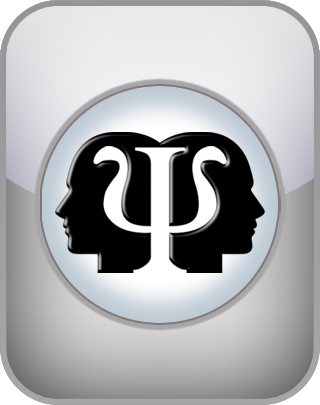Academically reviewed by Dr. Sabina Alispahić, Ph.D., professor of psychology
Coping Mode Test
Based on the research of Dr. Jeffrey Young, Ph.D.
This 91-question test will allow you to obtain your scores on all of the 13 coping modes. Coping modes are distinct emotional states or mindsets that influence how individuals perceive and respond to situations, often originating from early life experiences. They encompass patterns of thoughts, feelings, and behaviors that shape one's self-concept and interpersonal relationships.
To take the test, enter your input below.
Question 1 of 91
I feel left out or excluded.
| Disagree | Agree |
NEXT
The Emotional Coping Modes Test was developed by IDRlabs but pays homage to the work of Dr. Jeffrey Young, Dr. Aaron T. Beck, Dr. Joan Farrell, and Dr. Ida Shaw.
Some themes explored on the test are:
- Enraged Child: This mode embodies intense feelings of anger and frustration, often stemming from past experiences of mistreatment, neglect, or injustice. Individuals may feel overwhelmed by their anger, leading to explosive outbursts or aggressive behavior. They may struggle to regulate their emotions and may lash out impulsively when triggered by perceived threats or injustices.
- Angry Child: Similar to the Enraged Child, this mode involves persistent feelings of anger and resentment, particularly towards those perceived as having wronged or betrayed them. Individuals may harbor deep-seated grudges and may struggle to forgive or let go of past grievances. They may also exhibit passive-aggressive behavior or engage in hostile interactions with others.
- Impulsive Child: In this mode, individuals act impulsively without considering the consequences, driven by immediate desires or emotions. They may engage in reckless behavior, make impulsive decisions, or seek instant gratification without regard for long-term consequences. Impulsive actions may lead to negative outcomes, including damage to relationships or harm to oneself.
- Undisciplined Child: Reflecting a lack of structure or boundaries, individuals in this mode may resist discipline, responsibility, or adherence to rules. They may struggle with procrastination, avoidance of tasks, or difficulty following through with commitments. Individuals may prioritize short-term pleasure over long-term goals, leading to challenges in achieving success or fulfilling obligations.
- Vulnerable Child: This mode encompasses feelings of fear, insecurity, and vulnerability, often stemming from experiences of abandonment, rejection, or abuse. Individuals may experience heightened sensitivity to perceived threats or rejection, leading to defensive behaviors or avoidance of intimacy. They may seek reassurance and protection from others, fearing further harm or abandonment.
- Compliant Surrenderer: Individuals in this mode adopt a submissive and compliant attitude, prioritizing harmony and avoiding conflict at all costs. They may suppress their own needs and desires to please others, often at the expense of their own well-being. They may struggle to assert themselves or set boundaries, fearing rejection or disapproval.
- Detached Protector: Reflecting a coping mechanism for emotional pain, individuals in this mode disconnect from their emotions and relationships as a means of self-protection. They may appear aloof, indifferent, or emotionally distant, avoiding intimacy to shield themselves from vulnerability. They may struggle to connect with others on a deep emotional level, fearing rejection or betrayal.
- Punitive Parent: This mode represents an internalized critical voice that harshly judges and punishes oneself. Individuals may experience relentless self-criticism, guilt, and shame, mirroring the behavior of critical caregivers from their past. They may hold themselves to impossibly high standards and react harshly to perceived failures or shortcomings.
- Demanding Parent: Similar to the Punitive Parent, this mode involves setting excessively high standards and expectations for oneself. Individuals may push themselves relentlessly, striving for perfection and feeling inadequate when they fall short. They may struggle with self-compassion and may berate themselves for not meeting their own or others' expectations.
- Dysfunctional Parent: In contrast to the Punitive and Demanding Parents, this mode reflects maladaptive parenting behaviors learned from caregivers. Individuals may struggle with establishing healthy boundaries, expressing empathy, or providing support to themselves and others. They may exhibit dysfunctional relationship patterns or struggle with intimacy and connection.
- Dysfunctional Child: This mode involves regressing to a state of childlike helplessness or dependency in response to stress or emotional triggers. Individuals may feel overwhelmed by their emotions, seeking comfort and support from others instead of coping independently. They may struggle with self-reliance and may avoid taking responsibility for their own well-being.
- Bullying Attacker: This mode encompasses aggressive and hostile behavior towards oneself or others as a means of asserting dominance or avoiding vulnerability. Individuals may engage in verbal or physical aggression, seeking to intimidate or control others. They may lash out defensively when feeling threatened or insecure.
- Detached Self-Soother: Individuals in this mode disconnect from their emotions and seek comfort or distraction through self-soothing behaviors such as substance abuse, excessive eating, or compulsive activities. They may use these behaviors as a way to escape from emotional pain or discomfort, seeking temporary relief without addressing underlying issues.
Each of these modes reflects different aspects of an individual's emotional experience and coping strategies, often originating from early life experiences. The aim is to help individuals recognize and address these modes to promote emotional healing and develop healthier ways of relating to themselves and others.
Free online quizzes such as the present test do not provide professional assessments or recommendations of any kind; the test is provided entirely “as-is.” For more information about any of our online tests and quizzes, please consult our Terms of Service.

 English
English  Español
Español 